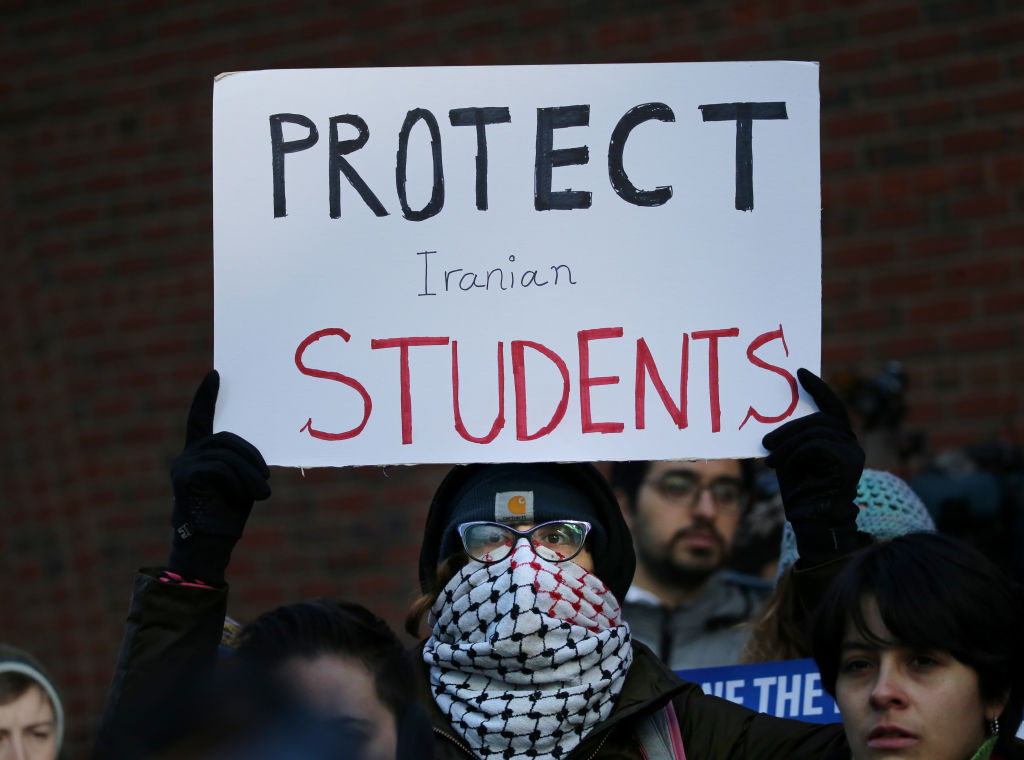
When 27-year-old Iranian Alireza Yazdani Esfidavajani flew into Detroit on Sunday, he expected to pursue his PhD studies at Michigan State University on a student visa. Instead, he became one of a growing number of Iranian students deemed “inadmissible” at a United States airport and forced to return home.
As tensions between the United States and Iran have escalated over the past few months, there appears to have been an unexpected fallout for a seemingly neutral group: Iranian students accepted to study at some of the U.S.’s universities. For students like Yazdani Esfidavajani, the process has been marked by uncertainty.
Yazdani Esfidavajani’s lawyer, Ghazal Nicole Mehrani, tells TIME that her client had been traveling for 24 hours was worn out by the time he was taken into Customs and Border Control’s (CBP) custody in Detroit. There, she said the agents told him that he should voluntarily withdraw his application for admission to the United States.
“They just told him that he was inadmissible, that they’d deemed that he is inadmissible. So his better option is to withdraw his admission,” Mehrani says. “He didn’t know what to do, because he wasn’t represented by an attorney. He listened to their advice.”
While “under stress and a lot of pressure,” and without a lawyer present, Yazdani Esfidavajani ultimately agreed to sign away his admission to the United States, at which point he effectively had “no rights whatsoever” Yazdani Esfidavajani said.
Soon afterward, he found himself on a plane out of the United States.
In a statement to TIME, a CBP spokesperson did not comment on why Yazdani Esfidavajani was refused admission, but noted that about 790 people are refused entry to the United States every day.
“The traveler was not arrested, rather held until a return flight could be arranged to his place of departure,” the statement said. “Applicants must demonstrate they are admissible into the U.S. by overcoming all grounds of inadmissibility including health-related grounds, criminality, security reasons, public charge, labor certification, illegal entrants and immigration violations, documentation requirements and miscellaneous grounds.”
Michigan State University Spokesperson Emily Gerkin Guerrant said in a statement that the university offered assistance to Yazdani Esfidavajani and defended the school’s international students.
“Through the Office of International Students and Scholars, the university has worked with members of our Michigan congressional delegation, other federal support agencies and the student’s lawyer to help through this difficult situation,” the statement read. “Global leadership can only be maintained if talented people from across the globe are encouraged to come here to study and work.”
Reports on how many Iranian students have been denied entry into the U.S. vary. The New York Times reported on Monday that at least 16 students have been sent back to Iran since August, while the Guardian reported the rejection of 10 students with valid visas earlier this month. One student was sent back to Iran last week despite an order by a federal judge that permitted him to remain the U.S. during the consideration of his case.
The American Civil Liberties Union has spoken out against the treatment of such students, writing that it is cruel to disrupt students’ futures.
“To upend their lives and their future careers so cruelly at the last minute does more than dehumanize them — it dehumanizes us,” the nonprofit said in a statement. “It says to the world that we are not a welcoming nation, but a mean and capricious one, and that our laws are nothing but pretexts for wanton discrimination.”
While some of the other students are reportedly banned from reapplying to come to the U.S. for five years, Yazdani Esfidavajani is theoretically permitted to reapply for a visa, says Mehrani.
Mehrani says her client would like to know why he was refused admission. She says that his Iranian citizenship was likely one of the reasons he was targeted.
“We just don’t want this practice, this policy, to turn into a common practice for CBP,” Mehrani says.
More Must-Reads from TIME
- Donald Trump Is TIME's 2024 Person of the Year
- Why We Chose Trump as Person of the Year
- Is Intermittent Fasting Good or Bad for You?
- The 100 Must-Read Books of 2024
- The 20 Best Christmas TV Episodes
- Column: If Optimism Feels Ridiculous Now, Try Hope
- The Future of Climate Action Is Trade Policy
- Merle Bombardieri Is Helping People Make the Baby Decision
Contact us at letters@time.com